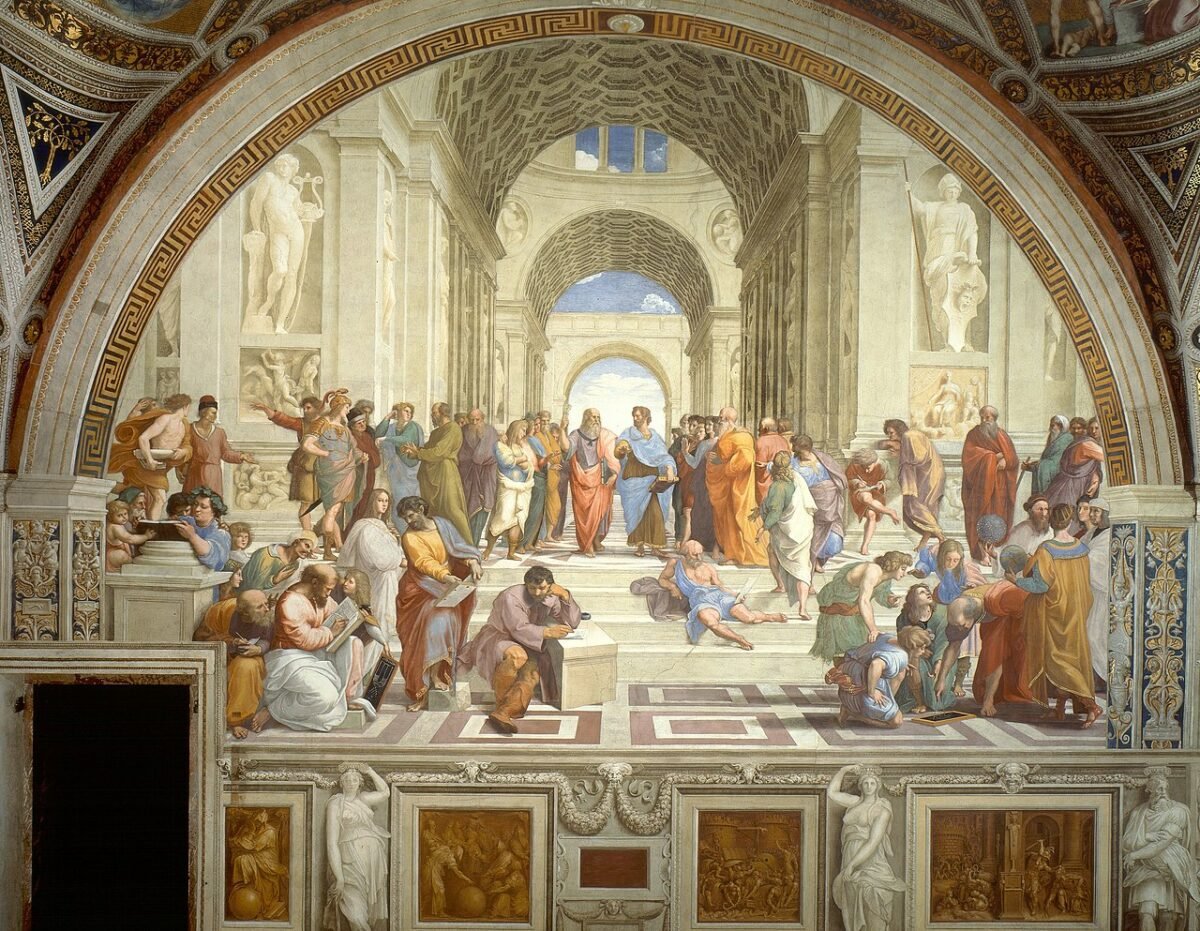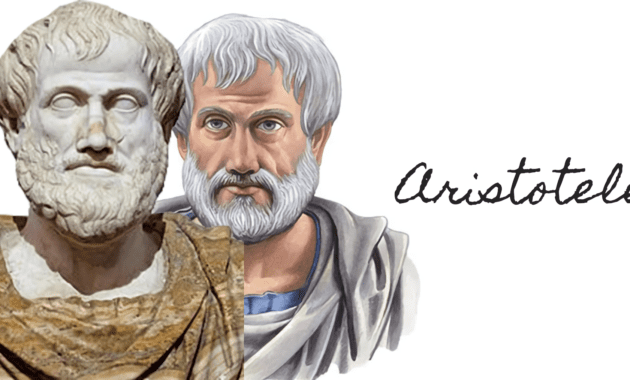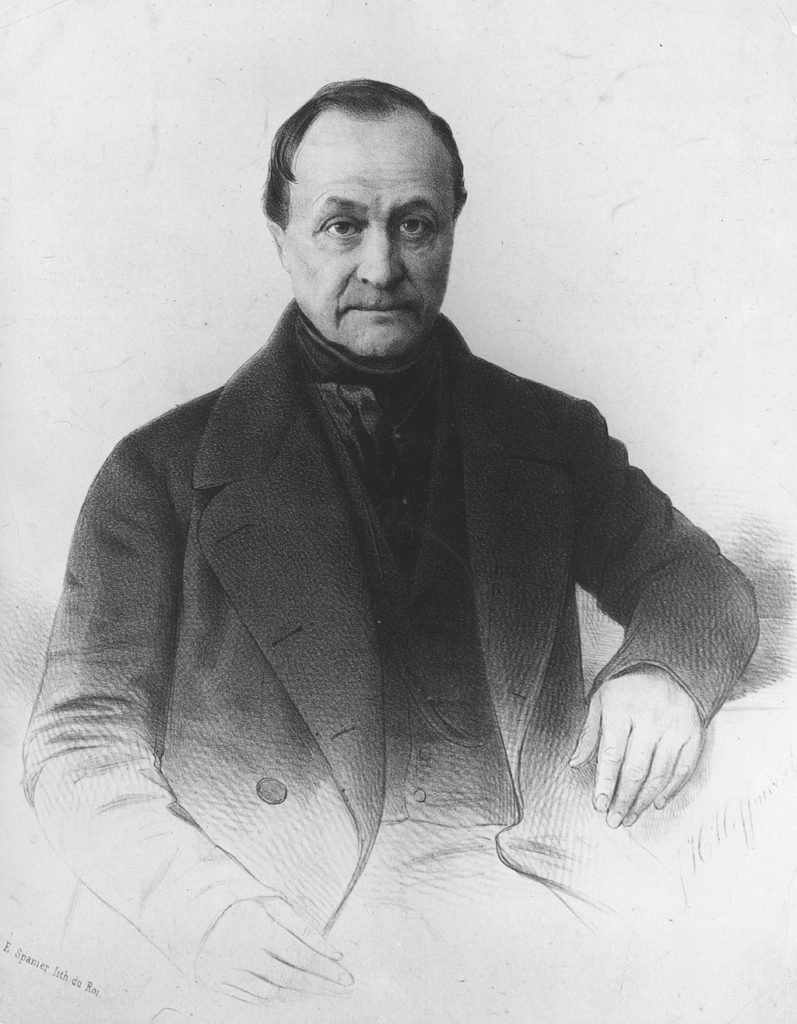What comes to your mind when you hear or see the word philosophy? In this advanced era, the word philosophy is certainly no stranger to our ears. Surely many of us have heard of or studied philosophy. For those of you who have heard the word, what comes to your mind when you see or read the word philosophy?
Is it a science that studies abstract things? Or one of the majors in your college? Or maybe the subject you don’t like the most? Do any of you think that philosophy is a science that deals with love? Or are some of you aware that our thought process is also part of a philosophy?
You need to understand that philosophy has become one of the sciences that is often underestimated, judged as something that is not clear, strange, and abstract if you do not understand it more deeply. If you have not studied philosophy in depth, then you will never like this one field of science.
Because, if you understand it more deeply and study it properly, then you will find a “love” in philosophy. Well, below we will discuss the flow of philosophy in more depth along with the understanding and other matters related to philosophy. For those of you who want to learn it, read this article to the end.
What is Philosophy?
Philosophy is one of the words that comes from the word in English, namely “Philosophy”. The word comes from Greek which is divided into two words, namely “Philein” or “Philia”, and “Sophia”. So, what do these two words mean? So, both words have the word Philen or Philia which means love or love, while Sophia has the meaning of wisdom. In simple terms, philosophy has the meaning of loving wisdom or love of wisdom. A philosopher or thinker loves wisdom.

Where people who love or like wisdom will be more careful in believing and accepting things that are not clearly sourced. They will try to keep asking questions until the answers they receive are enough to answer all their confusion and doubts. It could be said that their lives would feel much calmer. With their questions and their efforts to find answers, it can help them not to get too caught up in things that are not clear. This is in accordance with the characteristics of philosophy, namely radical, universal, and also systematic.
Philosophy itself is universal, that means the thoughts that exist in the school of philosophy apply to everyone, without exception. Then philosophy has a radical characteristic, namely to dig something up to the root or source. Where a philosopher does not just stop at one or two questions, but their questions will continue to arise until there is no longer anything that makes them feel doubtful or confused. Then philosophy is systematic is all thoughts that arise or questions that arise until all answers are sequential and interconnected. In the end, you will find that the existing schools of philosophy are schools that are interconnected with each other.
The second love you can get at the beginning of the emergence of philosophy. One of the positive emotions that exist in humans is admiration and philosophy arises from these positive emotions. Amazement ultimately brings a high curiosity about the things we admire. From that sense the questions arose to form a school in philosophy. As we know that philosophy does not only have one or two schools, but philosophy has various schools. Where these school arise because of the differences in the way we view the world and everything in it.
Even in looking at the same thing, we may have a different point of view. Maybe you will see from the right side and other people will see from the left side. Then eventually some people will create a new view. Likewise with the flow in philosophy. Various kinds of flow, of course, is the point of view of the characters in seeing the world. This point of view can be based on how people experience life or the principles and beliefs they have.
Of course, all of these things are based on a clear basis, found from curiosity and questions that arise from that sense. In the following, we will discuss the branches of philosophy and also the various schools of philosophy that you need to understand.

Branches of Philosophy
Below are some branches of philosophy, among others:
a. Ontology
Ontology or often referred to as metaphysics is a branch of philosophy that explains the nature of everything that exists and discusses the very basic or ultimate character of objects or realities that lie behind direct experience. Basically, ontology explains everything that exists, the questions that will be uncovered are unlimited, for example, what is the nature of space and time, matter, motion, and change? What is the origin of this universe? and other questions. In relation to education, the ontology of educational science discusses the nature of the substance and also the pattern of organization of the science of education.
b. Epistemology
Epistemology is a branch of philosophy that examines the origin, methods, structure, and validity of knowledge. The most basic question is what is knowing? What is the origin of our knowledge? How do we know that we have knowledge? How do we get knowledge? And other questions. Thus, epistemology discusses the nature of formal objects and also the material of educational science.
c. Axiologists
Axiology generally talks about the value and use of everything related to the moral principles of developing the use of knowledge obtained. For example, educational axiology discusses the nature of the value of the theoretical and practical functions of educational science.
d. Logic
Logic is a branch of philosophy that talks about the rules of thinking so that with these rules the right conclusions can be drawn. In other words, logic is a systematic study of rules to strengthen the premises or causes about the conclusions of these rules. So that we can use it to distinguish good arguments and bad arguments.
Philosophy Schools
The following are some of the schools that exist in philosophy:
1. Idealism
Idealism is a school that assumes that reality or reality is composed of soul and ideas. The term idealism comes from the word “idea” which means something that is present in the soul. This flow is a very important beginning for the development of human thinking. The basic thinking of this school was also explained by Plato. According to him, the most basic reality is an idea. While the reality that can be seen by humans is a shadow of the idea itself.
Such thinking must view the visible reality as something that is not so important. They will only accept it if the reality is connected with ideas. Even so, this idealistic thought is the most acceptable thought by figures or philosophers, one of which is Descartes. He agreed that the element related to the soul is an element that is more important than a visible object.
2. Rationalism
The flow of rationalism is a school that puts forward style as the only reliable source of knowledge. For the characters, reason is the most important asset possessed by humans to acquire, discover, and test knowledge. They also assume that the mind has the ability to solve various kinds of problems that exist in life. All problems can be solved and solved using reason. The famous figure in the flow of rationalism is Rene Descartes. He has the nickname as the father of modern philosophy.
The flow arose because of a question from him “What is the basic method that humans will use for reflection?” From these questions, he found reason as one of the most basic things that humans use to reflect on something. If the flow is pulled to the present, is it still relevant? Do you belong to the group of rationalists, who always use reason in solving all kinds of problems that arise in life? Or maybe you belong to another school?
3. Empiricism
This flow focuses more on the experience that a person has as a source of knowledge. The word empiricism comes from the Greek which means sensory experience or the experience of observation through the five senses. Empiricism is a school that is very contrary to rationalism. According to the characters in it, knowledge comes from experience. So that the five senses are the clearest and most certain primary source of reason. Everything that humans know depends on how they use their five senses, starting from hearing, seeing, touching what they have, and talking.

The empiricist figures also reject the belief that humans have the nature of knowledge within themselves. According to this school, without experience, knowledge cannot be formed. In addition, this school was also formed by Francis Bacon and Thomas Hobbes with the view: All knowledge can be formed by combining what has been experienced by humans. Are you one of those people who believe in this flow? Where experience is something that can shape a person’s perspective so that it can affect how they behave and the personality that is formed from that experience.
4. Dualism
Dualism is a school which states that reality consists of two different and contradictory roots. Each root is unique and cannot be removed. So, there are some figures who say that this school is a combination of idealism and materialism, or a flow that combines the soul and body. The figure who formed this thought was Thomas Hyde. Where the basic thought is a substance and the mind is a different thing and both will complement each other to form a knowledge.
5. Positivism
This flow emerged in the 19th century. Where the basis of this thinking is based on knowledge that comes from what is known, certain, and the real thing. Positivism focuses on a fact that is real and excludes things beyond reality and unseen reality. This school is very close to empiricism, which both believe that knowledge is based on experience based on the senses. According to the characters in it, humans will never know anything more than what they see. Based on real facts, humans will not know anything behind these facts if they do not see them.

The figure who created this school was Henri de Saint Simon, which was later developed by his student named August Comte. The basis of this thinking is to understand a knowledge that humans must draw causal relationships. Until the laws that make up that knowledge. In the process of seeking this, humans will find various kinds of facts that are evident in this knowledge.
6. Realism
Realism is a school that exists in science. According to this school, he takes issue with the object of human knowledge. Where realism views that the object of knowledge believed by humans is outside of the human itself, for example.
a. Knowledge of trees
b. Knowledge of animals
c. Knowledge of the earth
d. Knowledge of the city.
All the examples mentioned above do not only exist in the mind of the human who observes them, but also exist by themselves and do not depend on the human soul.
realism is divided into two groups, among others:
1. Rational Realists
This type of realism is divided into two groups, namely classical realism and religious realism. Both schools, both classical and religious, have their roots in Aristotle’s philosophy. However, there are fundamental differences between these two schools. Where the difference is that classical realism is usually directly from Aristotle’s view, while the flow of religious realism is not directly from Aristotle. He developed in the philosophy of Thomas Aquinas, a Christian philosopher who became known as Thomism. The views of both agree that the material world is real and exists outside the person who pays attention to it.

Then, adherents of Thomism argue that the soul is one of the important things even though it is not real like the body. Therefore, this school also argues that the soul as well as the body was created by God. Thomism also assumes that knowledge is obtained through revelation, experience, and thinking. Adherents of the flow of religious realism argue that the harmony of the universe is God’s creation, so we need to study it.
2. Scientific Realism
This Scientific Realism group is the development of natural science. Where the flow of natural realism has a skeptical and experimental nature. The school holds that the world around us is real, so one of the tasks of science is to investigate all the contents in it and this is not the task of philosophy. The task for philosophy is none other than the coordination of the concepts and discoveries of various sciences. According to this flow, nature has a permanent nature, indeed there will be changes, but the changes are directly in accordance with the laws of nature which are permanent and make the universe continue according to its regular arrangement.
